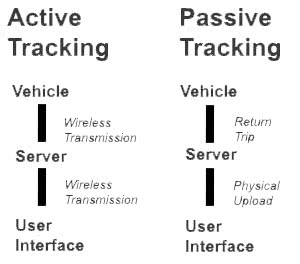GPS Fleet Tracking
3 Essentials for Any GPS Fleet Tracking System

There’s no question that any modern logistical operation moving significant amounts of overland freight need a GPS fleet tracking system. The amount of investment and liability that goes into every shipment these days requires a level of security that goes well past hourly situation reports or logbooks kept on paper and pen.
Plenty of fleet tracking vendors provide laundry lists of the features they offer, but few ever provide any insight as to which features are most important. This makes a little sense from the marketing perspective–why bother grading your product’s features against each other versus giving all of them equal weight and emphasis in the sales pitch? Of course, for the company just starting the process of looking for a new fleet tracking system or a replacement one, this means that it’s pretty hard to get a feel for what the baseline essentials are.
Here are three of the core functionalities to be on the lookout for when prospecting a new fleet tracking system.
Active-Transmission GPS Tracking
This is a need we touched on previously in our post on the five most common fleet tracking pitfalls. Any tracking system that updates vehicle status every five minutes or longer counts as a passive system–something to be avoided. Some passive systems don’t even transmit wirelessly or automatically, requiring users to manipulate the actual GPS hardware to send an update or even storing it until it’s physically removed at the end of a shipment.
On active GPS tracking signals are broadcast frequently and automatically. Signals from the GPS device on the vehicle are transmitted to either a cellular or satellite system, where they’re then sent to the organization’s network in the form of intelligible data on a user interface. Having that kind of always-on, real-time tracking on the fleet is an absolute essential for any organization managing time sensitive deliveries and using a fleet of vehicles and drivers to do it. Theft prevention, route optimization, greater fuel efficiency and employee behavior tracking are a few of the functionalities active transmission opens up.
Reporting and Analytics Tools
Reporting is the real heart and soul of any effective GPS fleet tracking system. As we’ve mentioned before in reference to more than one software segment, all the raw machine data in the world isn’t going to be any help to an organization unless there’s some kind of analytical engine in place to glean insights off of it. The same applies to fleet tracking.
In our article on the metrics to be following in your fleet tracking software we outlined some of the key metrics a shipping organization should be watching, but in general the key benefit of fleet tracking analytics is in providing a long-term picture of all shipping operations.
Conditional Alerts and Red Flags
One of the greatest advantages of real-time fleet tracking is that it opens up the possibility of creating a whole series of custom alert states and red flag notices tied to certain data values. For example, by tying route information to vehicle speed data a manager can use conditional formatting to issue a red flag every time a vehicle’s speed surpasses the speed limit for whichever region it’s currently geofenced into. From there the manager can call the driver directly and advise him to slow the vehicle back under the speed limit.
Not every use of conditional alerts needs to be so corrective in nature. Another example of creative use is tying an alert to traffic data along selected routes. A flag can go up when vehicles come within a certain distance of a congested route, after which the central office can contact drivers and advise them to take alternate routes.
Download our Top 10 GPS Fleet Tracking Software Report for a side-by-side comparison of the leading GPS fleet tracking solutions. Visit our Field Service Software research center page for more information on fleet tracking and other field service management solutions.






